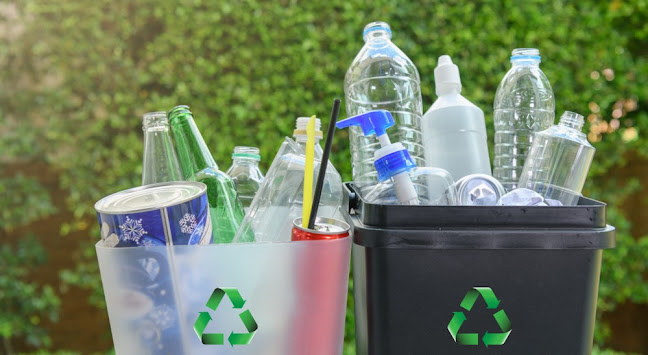What Do You Recycle? Some items you will be surprised you can not.
1. Pizza boxes with heavy grease or food residue: While clean pizza boxes can usually be recycled, those with significant grease or food residue may contaminate the recycling process and are not recyclable.
2. Disposable coffee cups: Many disposable coffee cups are made from a combination of materials that are difficult to separate for recycling, such as a plastic lining and paper. This makes them non-recyclable in most recycling systems.
3. Plastic bags and cling wrap: Thin plastic bags and cling wrap can cause problems in recycling facilities, as they can get tangled in sorting equipment. Many grocery stores have drop-off points to recycle plastic bags separately.
4. Styrofoam (Expanded Polystyrene): Styrofoam is not easily recyclable due to its low density and potential contamination. Some places have specialized facilities that can recycle it, but it's not commonly accepted in regular recycling programs.
5. Takeout containers and disposable cutlery: These items are often made from mixed materials, making them difficult to recycle. Additionally, they might be contaminated with food waste, further limiting their recyclability.
6. Tetra Paks: These are cartons used for beverages like milk, juice, and soup. While they are recyclable in some places, not all recycling facilities can process them due to their complex structure made from multiple layers of different materials.
7. Light bulbs: Regular incandescent bulbs and some types of energy-efficient bulbs contain materials that make them unsuitable for standard recycling and can be hazardous to the recycling process.
8. Broken glass: Although glass is recyclable, broken glass can be dangerous for workers in recycling facilities and may not be accepted for curbside recycling. Some cities offer separate glass recycling drop-off locations.
9. Paper Towels: In most cases, paper towels cannot be recycled through standard curbside recycling programs. The main reason is that paper towels are typically made from lower-grade paper fibers and are often contaminated with food residue, cleaning chemicals, or other substances that can't be easily removed during the recycling process.
Remember, recycling capabilities can vary significantly based on your location and the specific recycling facilities available. Always check with your local recycling program to understand what items are accepted for recycling in your area. Proper recycling is essential for the environment, so if you're unsure about an item, it's better to research and dispose of it responsibly.





Comments
Post a Comment